Apply now to join our next cohort of Community Science Fellows and Community Leads!
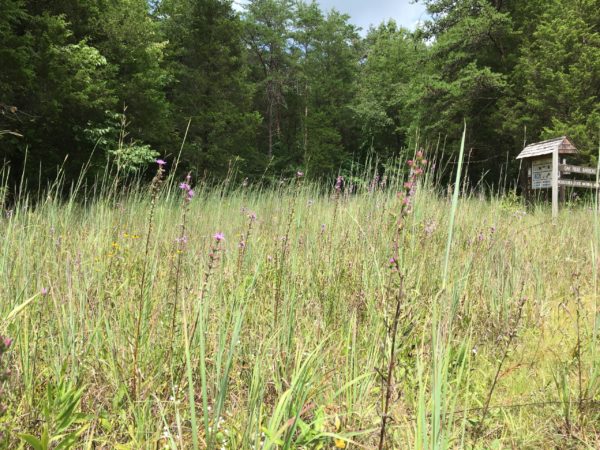
Photo courtesy of Ken Mayes
This project will create a baseline species inventory of the Cedar Barrens Natural Area to update management plan, compare to future surveys, and determine invasive species impacts and removal effectiveness. This knowledge will also be used to raise awareness of the area to the local community.
Tennessee Citizens for Wilderness Planning (TCWP) is an organization dedicated to achieving and perpetuating protection of natural lands and waters by means of public ownership, legislation, or cooperation of the private sector. TCWP focuses on the Cumberland and Appalachian regions of TN, and it’s organized exclusively for charitable, educational, and scientific purposes.
In 1998 TCWP registered the Oak Ridge Cedar Barrens as a state natural area by agreement with the City of Oak Ridge and the Tennessee Department of Environment and Conservation (TDEC). The Barrens are located in the middle of the City of Oak Ridge, and provides educational opportunities for the adjacent middle school and greater community. The City of Oak Ridge is a small city of about 29,000, created for the Manhattan Project in 1941 during WWII.
Due to its ecological history, the Barrens contains preserved areas of native prairie. At least 3 rare plant species grow there in abundance. Currently, there are three annual workdays at the Barrens, focusing on the removal of invasive pest plants, and encroaching native woody plants.
TCWP has managed the Barrens for over 30 years. The 2014 Oak Ridge Barrens Natural Area Management Plan outlined the need for comprehensive biological surveys to evaluate the site’s importance and serve as a baseline and guide for future management. The plan also included a goal to publish a paper about the results of the surveys. The TCWP felt TEX provided a great opportunity to move forward.
Working with the scientist, the TCWP will plan and implement comprehensive biological surveys and inventories of the plants and animals present in the Oak Ridge Cedar Barrens Natural Area in 2022. A major focus will be on the plant species, but other biological surveys (bird, insect, herpetological) would only increase the value of this effort. The resulting data will be compiled and analyzed according to standard scientific methods to serve as a baseline for future survey comparisons, develop management plans, and provide the foundation for a publication in a scientific peer-reviewed journal.
Effective monitoring and survey techniques will be developed over the 2021-2022 winter season to be implemented in 2022. The data will be collected by volunteer specialists with assistance by volunteer students and other interested persons in the surrounding area.
These efforts will result in an increased awareness of the Barrens to the local community. A journal article will raise awareness in the scientific community of this pocket of rare plant species, perhaps by acting as a gene reservoir. TCWP will give tours of the area to local and state officials, educators, and the general public. Some of the survey methods can be developed into ongoing educational programs. Also, there will be a press release of the survey to be published in the TCWP website and other related media.
This project could kick start an interest in utilizing this area for the local educators, as well as contribute to the scientific community. It can also be used to create a future management plan, with a focused effort on specific species or areas.
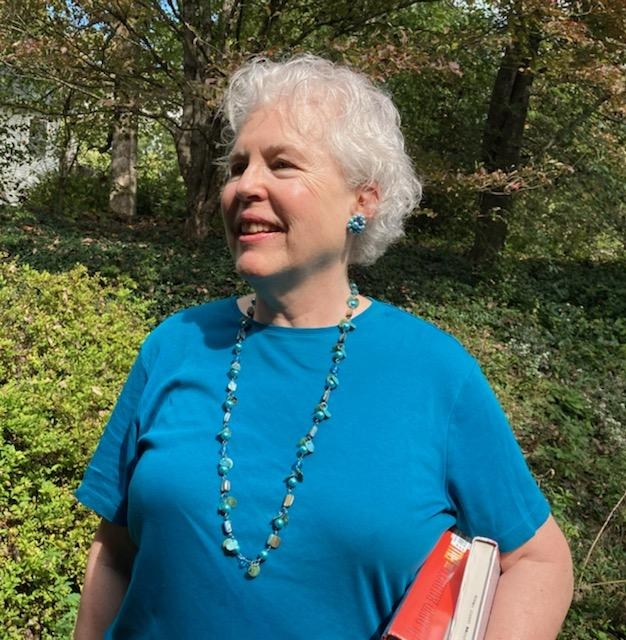
Sandra Goss is Executive Director of the Tennessee Citizens for Wilderness Planning. Sandra, a native of Crossville, has been with Tennessee Citizens for Wilderness Planning for 20+ years, advocating for clean air, pure water, and adequate habitat for all creatures. She has been involved in efforts to decrease water contamination from coal mining, to conserve land from development in the Obed River gorge, to maintain pure drinking water in Tennessee.
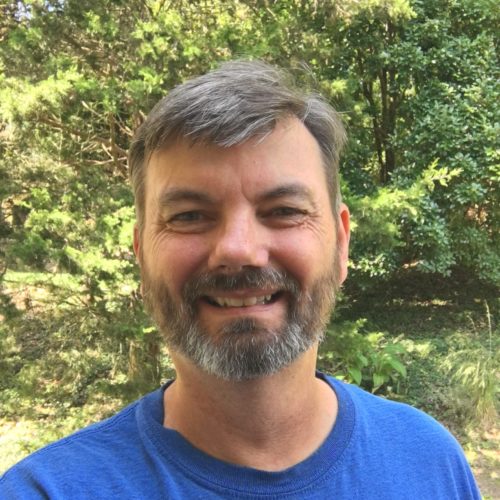
Ken Mayes is the Outreach & Membership Coordinator for Tennessee Citizens for Wilderness Planning. He has a Bachelor of Science in biology with minor in botany from the University of Tennessee, Knoxville.
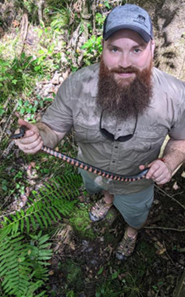
Evin Carter is a research associate in the Environmental Sciences Division at Oak Ridge National Laboratory, where he also leads the Wildlife Task for the 16,000-hectare DOE Oak Ridge Reservation. Evin takes an integrative approach to develop management guidelines for sensitive species and environments, with a focus on the human dimensions of biodiversity conservation. He typically uses a combination of field-based wildlife studies and laboratory (e.g., physiological) metrics to develop broader-scale spatial and life history models. He obtained a M.S. in Biology from Purdue University and a Ph.D. in Ecology and Evolutionary Biology from the University of Tennessee. Evin is an active contributor to community and sustainability initiatives. He currently directs the Southern Appalachian Biosphere Region (UNESCO-MAB) Initiative, which focuses on promoting positive relationships between humans and the natural world through integrated environmental research, outreach, and training.
Jen M Peters-Ecophysiologist on The SPRUCE Experiment at ORNL.
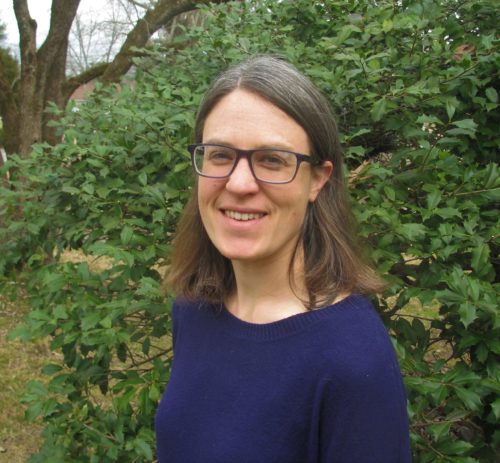
Margaret Cumberland is the Flora Field Ecologist at the Appalachians and Cumberland Plateau Domain (D07), part of Battelle’s National Ecological Observatory Network (NEON) Program. She is based out of East Tennessee and has been with NEON for 6 years. Her role involves leading a team of technicians to collect ecological data, and in particular ensures the accuracy and integrity of the flora-related data products. In addition, she is a NEON Certified Trainer, acts as the Domain’s the Safety and Security Officer, is the office’s IT liaison, and assists with outreach events. She has an M.S. in Conservation Ecology and Sustainable Development from the University of Georgia, and B.S.’s in Biological Sciences, Botany, and Zoology from NC State University. Outside of NEON, Margaret enjoys participating in environmental education and citizen science programs (particularly ones involving plants or birds), as well as camping in the local parks or doing various DIY projects.
We are looking for a scientist who is experienced in designing and conducting comprehensive plant surveys and compiling the resulting data. We welcome the inclusion of students for the surveys. For the purposes of this project, we are only interested in a broad statistical analysis of the data. However, we are open to this becoming a student project with further studies in the site.
We are also very interested in adding other biota surveys of the study site (i.e. bird, insect, herp, etc). Any knowledge of contacts about designing and conducting a variety of surveys would be ideal. In addition, while not within the scope of the project, we would like someone who may be interested in a scientific publication of the data.
Desired skills and qualifications
Thriving Earth Exchange asks all scientific partners to work with the community to help define a project with concrete local impact to which they can contribute as pro-bono volunteers and collaborators. This work can also position the scientists and communities to seek additional funding, together, for the next stage.
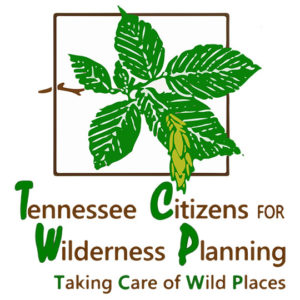
Tennessee Citizens for Wilderness Planning (TCWP) is an organization dedicated to achieving and perpetuating protection of natural lands and waters by means of public ownership, legislation, or cooperation of the private sector. TCWP focuses on the Cumberland and Appalachian regions of TN, and it’s organized exclusively for charitable, educational, and scientific purposes.
 The National Science Foundation’s National Ecological Observatory Network (NEON) is a continental-scale observation facility operated by Battelle and designed to collect long-term open access ecological data to better understand how U.S. ecosystems are changing.
The National Science Foundation’s National Ecological Observatory Network (NEON) is a continental-scale observation facility operated by Battelle and designed to collect long-term open access ecological data to better understand how U.S. ecosystems are changing.
(c) 2024 Thriving Earth Exchange